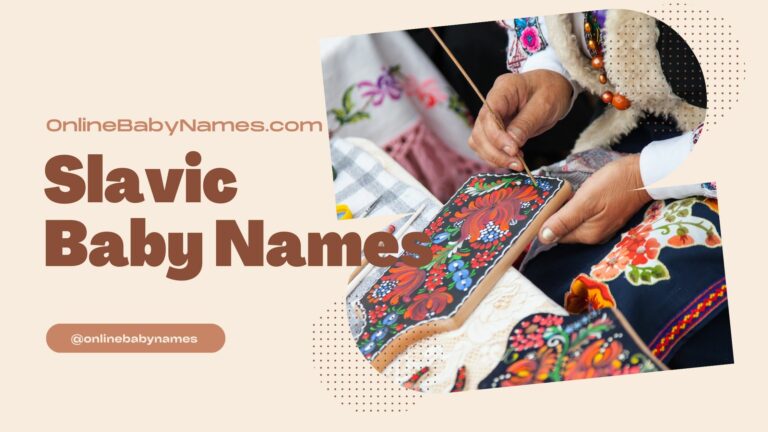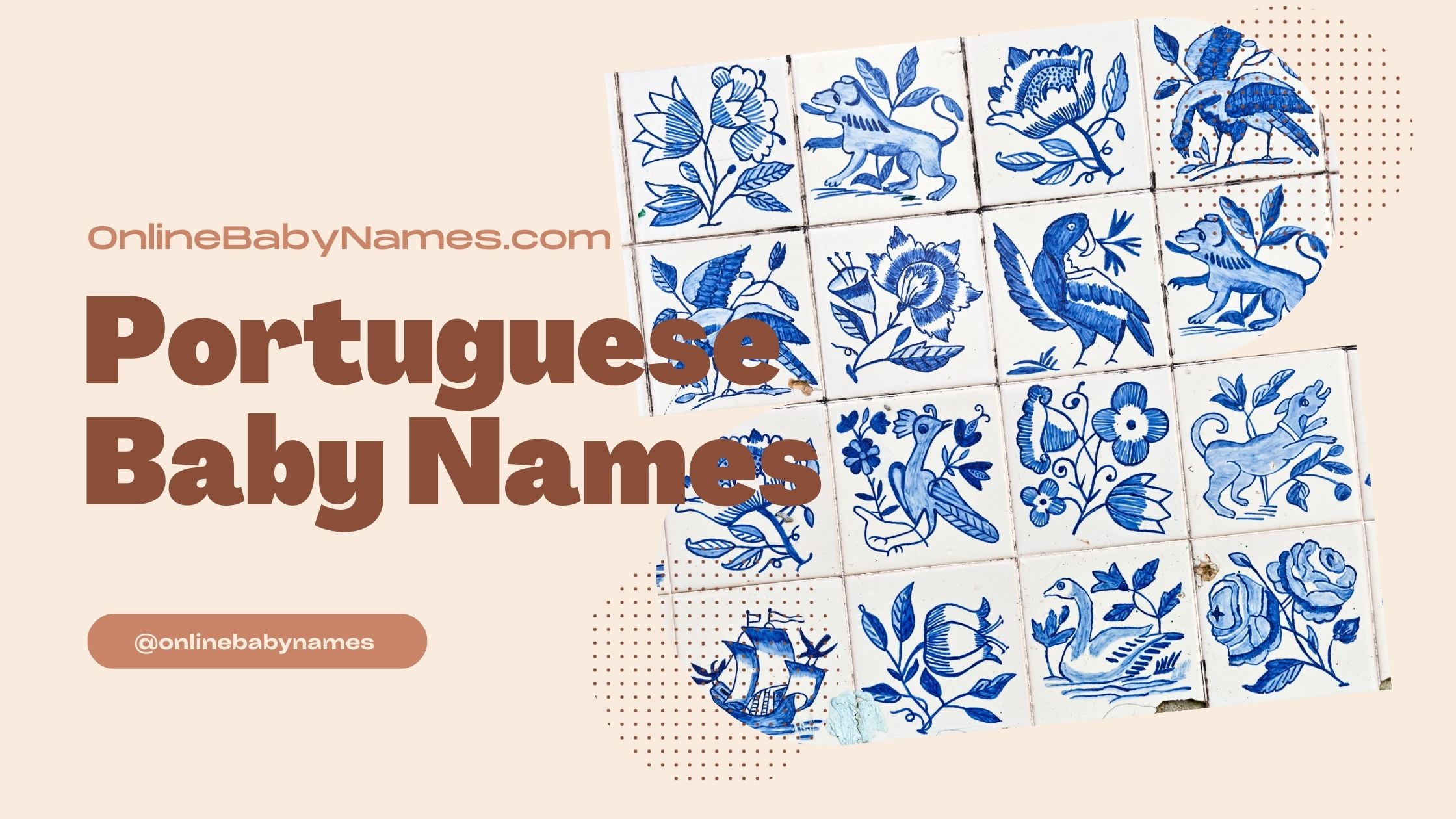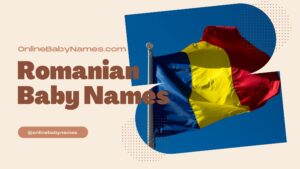
Choosing the perfect baby name can be a daunting task, as it’s a decision that will impact your child for their entire life. Slavic baby names have a unique charm and history, making them an excellent choice for parents seeking something memorable and distinctive. These names, originating from the Slavic-speaking regions of Eastern Europe, often have beautiful meanings and deep cultural roots.
Slavic baby names are rich in history, reflecting the values and traditions of their native peoples. While some are more familiar to Western ears, like Vladimir and Olga, others remain lesser-known treasures just waiting to be discovered. If you’re looking to give your baby a name that represents strength, hope, or love, you’ll find one among the many Slavic options available.
In this article, I’ll guide you through some truly enchanting Slavic baby names, exploring their meanings and history. Whether you have Slavic heritage or are simply searching for a unique and meaningful name, I’m sure you’ll find inspiration and allure in these often underappreciated monikers.
Uncovering the Origin of Slavic Baby Names
When it comes to choosing a baby name, many parents seek unique and meaningful options. Slavic baby names offer the perfect blend of tradition and individuality. To fully appreciate these names, let’s dive into their origin and explore the rich cultural heritage they represent.
The history of Slavic baby names can be traced back to the prehistoric Slavic languages. The Slavic people were united by a common language, which later evolved into three main branches: East Slavic, West Slavic, and South Slavic. As these groups expanded across Europe and interacted with various cultures, distinct name conventions emerged within each branch.
Common themes in Slavic baby names include nature, warriors, and virtues. The names often consist of two elements, reflecting the importance of balance in Slavic cultures:
- The first element typically expresses a desirable virtue;
- The second element, often a verb or noun, demonstrates action or achievement.
This combination creates names that are meaningful and expressive, making them an attractive choice for parents who want their child’s name to carry a positive message.
A few examples of popular Slavic baby names and their meanings include:
- Ivan (John), meaning “God is gracious”
- Natalia (Natalie), which means “born on Christmas Day”
- Aleksander (Alexander), signifying “defender of the people”
When selecting a name, it’s important to consider its pronunciation, particularly if connecting with both Slavic and non-Slavic speaking communities. Though some Slavic names may seem challenging to pronounce, don’t be discouraged! With practice, you’ll be able to tackle even the most intimidating names with confidence.
Additionally, if you’re interested in incorporating your family’s ancestry into your child’s name, it’s helpful to research surnames and customs specific to your heritage. Slavic last names typically follow a patronymic system, where the father’s name is adapted as a surname, sometimes adding “ovich” (son of) or “ovna” (daughter of). Keep this in mind when crafting your baby’s full name.
In summary, Slavic baby names provide a rich tapestry of meanings and cultural significance. The variety of options ensures that you’ll find the perfect name to represent your family’s unique story and values. Embrace the beauty and history of Slavic names to give your child a name that truly stands out.
Symbolism Behind Slavic Names
Slavic baby names carry deep cultural significance, and they hold symbolic meanings that often relate to the child’s personality and attributes. Many Slavic names have rich, historical origins and some of them are even rooted in the ancient Slavic pagan culture.
Names in Slavic cultures can be inspired by nature, legends, or character traits. Here are some common themes found in Slavic names:
- Nature: Slavic names often have connections to the natural world, reflecting the beauty and power of nature. For example, the name Jasna means “clear, bright” in several Slavic languages, while Radomir means “happy peace” in Old Slavic.
- Legends and mythology: Some Slavic names are inspired by legendary heroes and figures in Slavic mythology. One prominent example is the name Dobrila, which comes from the word dob (“good”), and is also the name of a legendary kind-hearted girl in South Slavic folklore.
- Character traits: Slavic names can also signify positive personality traits, like bravery, wisdom, and strength. For example, the name Aleksander means “defending men” and has been a popular name throughout the Slavic-speaking world.
In addition to the meanings behind given names, Slavic surnames can also hold historical and lineage significance. In many cases, surnames are derived from professions, geographic locations, or patrilineal ancestry.
Here’s a table of some popular Slavic names, their meanings, and language origins:
| Name | Meaning | Language Origin |
|---|---|---|
| Anastasia | Resurrection | Greek (used in Slavic languages) |
| Boris | Wolf, Short | Bulgarian, Russian |
| Jelena | Shining, Bright | Croatian, Serbian, Slovene |
| Milica | Gracious, Kind | Serbian, Croatian, Slovene |
| Nikola | Victory of the people | Croatian, Serbian, Bulgarian, Macedonian |
| Svetlana | Light, Bright, World | Russian, Bulgarian, Serbian, Macedonian |
Choosing a Slavic baby name may involve considering the child’s heritage, the meaning behind the name, and potential connections to the family’s history. By understanding the cultural and historical significance, it’s possible to find the perfect name that reflects both the child’s identity and values as they grow up with their Slavic roots.
Top Slavic Names for Boys
I’ve compiled this list of popular Slavic baby boy names just for you. If you’re looking for a cultural and meaningful name for your baby boy, this might be the perfect place to start. The names mentioned below possess strong roots in tradition and culture, as well as their unique, timeless appeal.
- Aleksander: Derived from the Greek name “Alexander,” which means “defender of the people.” Aleksander is a popular choice in Slavic countries and can be shortened to the nickname Sasha.
- Dmitri Or Dmitry: Based on the Greek name “Demetrius,” meaning “follower of Demeter,” the goddess of agriculture and fertility. It’s a powerful, time-honored name in Slavic culture.
- Ivan: A Slavic variant of “John” or “Johannes,” meaning “God is gracious.” Ivan has been a popular boy’s name throughout Slavic history and remains a prevalent choice today.
- Maksim: Derived from the Latin name “Maximus,” signifying “greatest” or “largest.” Maksim is an appealing and strong Slavic name, often shortened to Max.
- Pavel: The Slavic form of “Paul,” meaning “small” or “humble.” Pavel is both vintage and stylish, making it an excellent choice for a baby name.
Now, let’s consider some lesser-known but equally charming Slavic boy names that have been gaining popularity in recent years.
- Bogdan: Meaning “God’s gift,” this Slavic name has religious undertones and positive connotations.
- Kamil: A Slavic version of “Camillus,” which means “perfect” in Latin. Kamil is a distinctive and attractive name choice.
- Radomir: A combination of two Slavic elements, “rado,” which means “happy,” and “mir,” meaning “peace.” Radomir signifies “happy peace,” promoting harmony and happiness.
If you prefer strong and masculine names, these Slavic options might be just right for your little warrior.
- Vladimir: Comprised of two Slavic elements, “vlad” meaning “to rule” and “mir” signifying “peace” or “world.” Vladimir, meaning “to rule the world” or “to rule with peace,” is an authoritative name for a strong little boy.
- Zoran: A Slavic name meaning “dawn” or “daybreak.” Zoran represents a clear, bright future and strength in the face of new beginnings.
When it comes to naming your baby boy, there’s no shortage of lovely and significant options in Slavic culture. Don’t be afraid to explore these beautiful and meaningful names for your little one.
Top Slavic Names for Girls
When it comes to Slavic baby names for girls, there’s an abundance of beautiful and meaningful options to choose from. They often capture the spirit and culture of the Slavic people while reflecting unique aspects of their history and folklore. I’ve compiled a list of some of the most popular Slavic names for girls, along with their meanings, to help you find the perfect name for your little one.
- Anastasia: Derived from the Greek word “anastasis,” meaning “resurrection,” Anastasia is a well-known name with a sense of strength and renewal.
- Milena: Meaning “gracious” or “dear” in various Slavic languages, Milena evokes a feeling of warmth and tenderness.
- Natalia: This name has its origins in the Latin word “natalis,” which translates to “birthday.” Natalia is often associated with the birth of Christ and is especially popular among Christian Slavic families.
- Katarina: A variant of the name Katherine, Katarina means “pure” and is a popular choice for its timeless elegance.
Sometimes, parents may be interested in names with a strong connection to Slavic mythology or history. Here are a few such names to consider:
- Mokosh: In Slavic mythology, Mokosh is the goddess of fertility, home, and earth. Her name is unique and definitely stands out among contemporary baby names.
- Vesna: As the goddess of spring in Slavic mythology, Vesna symbolizes new beginnings and growth, making it a fitting name for a baby girl.
- Zorya: Representing the morning and evening stars, Zorya is a powerful figure in Slavic mythology. This name adds a touch of celestial magic to any girl’s moniker.
To make your decision process even more meaningful, it’s worth diving into specific Slavic cultures to find unique names and meanings. Here are a few beautiful baby girl names from different Slavic countries:
| Country | Name | Meaning |
|---|---|---|
| Russia | Svetlana | “light” or “bright” |
| Croatia | Dragana | “precious” or “dear one” |
| Poland | Weronika | “true image” or “bringing victory” |
Whether you have Slavic ancestry, or simply appreciate the beauty and depth of these names, the choices are abundant and you’re bound to find the perfect name for your baby girl. Be confident in knowing that you’re giving her a name with cultural significance and a rich history behind it.
The Influence of Slavic Mythology on Baby Names
Slavic mythology has long been a treasure trove of inspiration for baby names, thanks to the ancient pantheon of gods, goddesses, heroes, and other mythical beings. The rich cultural heritage of Slavic nations, coupled with intriguing stories of creation, nature, and morality, provides a plethora of unique, meaningful names for parents to choose from.
Many Slavic baby names have their origins in mythology, with a strong focus on nature, strength, and protection – qualities that were highly valued by the ancient Slavs. These names often carry deep meanings, representing the characteristics of the gods and goddesses they were inspired by or the legends surrounding them.
For example, a few popular names derived from Slavic mythology include:
- Svetlana, meaning “light” or “world,” is derived from the Slavic goddess of the sun, Sveta.
- Dobromir, which means “peaceful” and “good,” comes from the name of a heroic prince in a popular legend.
- Mila, a name representing “gracious” and “dear,” has its roots in the reverence for the goddess of love and fertility, Milda.
The connection between mythology and baby names isn’t exclusive to ancient times. Even today, Slavic myths continue to influence baby name choices, with parents seeking names that bestow a sense of identity, heritage, and meaning upon their children. Additionally, non-Slavic parents often choose Slavic-inspired baby names for their uniqueness and the fascinating stories behind them.
Moreover, Slavic mythology has permeated various aspects of popular culture and literature, further expanding its influence on baby naming trends. Examples of myth-inspired characters and names can be found in books, movies, and TV shows, such as:
- Vasilisa the Beautiful, from a Russian fairy tale.
- Jarilo, a god of vegetation and fertility featured in many folk tales and rituals.
- Zorya, the daughters of the sky god, Svarog, in Neil Gaiman’s “American Gods.”
These names offer a glimpse into the rich tapestry of Slavic myths, showcasing the diverse themes and values that have been passed down through generations. By choosing a baby name influenced by Slavic mythology, parents can forge a meaningful connection between their child and the captivating tales woven into their cultural heritage.
Common Slavic Name Elements and Meanings
If you’re searching for a Slavic baby name, it’s essential to understand the common elements and meanings behind these names. It’s fascinating how the origins and cultural heritage of a name can provide rich insight into its significance. Let’s dive into some popular elements that make up Slavic names.
One key aspect of Slavic baby names is that they typically have two components that add depth and meaning to the name. These components are called roots. Many Slavic names are formed by combining two roots, creating a name that reflects the parents’ aspirations for their child or the child’s character traits. Here are some common roots found in Slavic baby names:
- Boj – battle or fight
- Dal – distance or far away
- Gor – mountain
- Jas – bright or clear
- Milo – gracious or dear
- Rad – happy or willing
- Slav – glory or fame
- Stan – stand or become
- Vlad – rule, govern or power
- Zdrav – healthy or well-being
For example, take the name Jaroslav. It’s derived from “Jaro_,” which means “spring,” and “_slav,” which means “glory.” Combined, Jaroslav means “glory of the spring.” We can see the same with a name like Stanislav, which combines “Stan” (stand or become) and “Slav” (glory), creating a name that means “becoming glorious.”
It’s also essential to acknowledge the gender-specific suffixes when considering Slavic baby names. These suffixes typically differ depending on the gender of your baby:
| Gender | Suffixes |
|---|---|
| Male | -slav, -mir, -drag, -den, -mil |
| Female | -slava, -mira, -draga, -dana, -mila |
Here are a few examples of popular Slavic baby names and their meanings:
- Miroslav (M) – combining “mir” (peace) and “slav” (glory), meaning “glorious peace”
- Vladimir (M) – combining “vlad” (rule, govern, power) and “mir” (peace) – meaning “ruler of the world” or “ruler of peace”
- Dragana (F) – deriving from “drag” meaning “precious” or “dear one”
When choosing a Slavic baby name, it’s important to consider the cultural heritage and meanings behind the name. By understanding the shared roots and elements of these names, you’ll be able to select a unique and meaningful name for your baby.
Slavic Baby Names Celebrities Love
When it comes to choosing baby names, celebrities often turn to Slavic names for their unique, strong, and elegant sound. I’ve noticed a growing trend for these unique names, and I’ll share some examples of renowned stars whose children bear Slavic monikers.
Mila Kunis and Ashton Kutcher are two high-profile celebrities who’ve embraced Slavic names for their children. Their daughter’s name, Wyatt Isabelle, incorporates Slavic origins. Wyatt is derived from the Slavic word ‘vyat’, which means ‘warrior.’ Likewise, their son Dimitri Portwood has a name of Slavic origin. Dimitri is a common Russian name, which means ‘follower of Demeter,’ the Greek goddess of agriculture.
Another celebrity couple, Alec and Hilaria Baldwin, named their second son Rafael Thomas. The name Rafael is of Slavic origin; it means ‘healing of the Lord.’
Here’s a list of other popular Slavic baby names favored by celebrities:
- Svetlana: Tennis star Anna Kournikova and singer Enrique Iglesias decided on this Slavic name for one of their twins. Svetlana means ‘light’ or ‘luminous.’
- Sasha: Shakira and Gerard Piqué chose this gender-neutral name for their second child. Sasha is a name derived from Alexander, which means ‘defender of the people’ in the Slavic language.
- Anja: Supermodel Alessandra Ambrosio named her daughter Anja. This popular Slavic name means ‘grace’ in the Slavic culture.
- Maksim: The son of actress Kirsten Storms and her husband, Brandon Barash, bears this strong Slavic name, which means ‘the greatest.’
The table below shows a summary of these intriguing Slavic baby names and their meanings:
| Name | Meaning | Celebrities |
|---|---|---|
| Wyatt | Warrior | Mila Kunis & Ashton Kutcher |
| Dimitri | Follower of Demeter | Mila Kunis & Ashton Kutcher |
| Rafael | Healing of the Lord | Alec & Hilaria Baldwin |
| Svetlana | Light, Luminous | Anna Kournikova & Enrique Iglesias |
| Sasha | Defender of the People | Shakira & Gerard Piqué |
| Anja | Grace | Alessandra Ambrosio |
| Maksim | The Greatest | Kirsten Storms & Brandon Barash |
In recent years, parents worldwide have turned to Slavic baby names for their unique, powerful, and enchanting characteristics. As more and more celebrities opt for these monikers, it’s no wonder that we’re seeing a surge in popularity for these remarkable names.
Tips for Choosing the Perfect Slavic Baby Name
Choosing a Slavic baby name can be an exciting and somewhat daunting task. To help you navigate this process, I’ve compiled a list of tips to assist you in selecting the perfect name for your little one.
1. Research the meaning and origin: It’s important to understand the meaning and origin of the name you choose. Not only does this provide a deeper connection to the name, but it can also spark interesting conversations and create a sense of pride in your child’s cultural heritage. Don’t hesitate to spend time delving into the fascinating world of Slavic names!
2. Consider the popularity of the name: Some parents prefer to choose a unique name, while others feel comfortable with a more familiar option. Keep in mind that popular names might have several children in the same age group sharing that name. A quick online search can help gauge the current popularity of a name.
3. Pronunciation and spelling: Ideally, a name should be easy to pronounce and spell. This can avoid unnecessary confusion and make it easier for your child as they grow. When in doubt, ask friends and family members for their input on the name’s pronunciation and spelling.
4. Compatibility with your last name: Make sure the name you choose pairs well with your family’s last name. It’s worth saying the full name out loud several times to ensure it flows smoothly and sounds pleasant to the ear.
5. Cultural significance: If your family comes from a Slavic background, you might want to pick a name that holds cultural significance. Alternatively, if your family is not of Slavic descent, consider how the name might sound and fit within your own cultural context. This is an excellent opportunity to embrace your child’s diverse heritage.
6. Initials and nicknames: Some names naturally lead to specific nicknames or initials that may be less than desirable. It’s a good idea to brainstorm possible nicknames and evaluate the combination of your child’s initials before making a final decision.
7. Future-proofing: Consider how the name will age with your child. A cute name for a baby may not have the same appeal as your child enters adulthood. Strike a balance between a name that’s endearing and one that will suit your child at any age.
In summary, when choosing a Slavic baby name, it’s essential to research the meaning, origin, and popularity, as well as consider pronunciation, spelling, cultural significance, initials, and age-appropriateness. With these tips in mind, you’ll be well on your way to selecting the perfect Slavic name for your little one.
The Revival of Ancient Slavic Baby Names
In recent years, there’s been a resurgence of interest in ancient Slavic baby names. Parents seeking unique and meaningful names for their children are looking to their heritage for inspiration. The rich history and traditions of the Slavic people offer a treasure trove of name options that are both beautiful and significant.
One reason for this revival is the desire to reconnect with cultural roots. As globalization progresses, people around the world are searching for ways to maintain their identity and celebrate their ancestry. Ancient Slavic names possess deep meanings that are often rooted in nature, mythology, or virtues, giving them a timeless appeal.
Key factors driving the popularity of ancient Slavic baby names include:
- Strong historical and cultural connections
- Deep meanings and symbolism
- Uniqueness and individuality
Here are a few examples of ancient Slavic baby names making a comeback:
Boys:
- Vladimir: meaning “to rule with greatness”
- Bogdan: meaning “gift from God”
- Igor: meaning “warrior from the east”
Girls:
- Nadia: meaning “hope”
- Tatiana: meaning “fairy queen”
- Zorica: meaning “morning star”
Some parents prefer to modernize these ancient names by giving them a contemporary twist. Variations and adaptations of traditional Slavic names are gaining popularity as a way of connecting with one’s heritage while still embracing the present.
However, choosing a Slavic baby name can be a challenge due to linguistic and cultural differences. It’s crucial to research the meaning and pronunciation of names to avoid misunderstandings or misinterpretations. Consulting with native speakers or people knowledgeable about Slavic culture and history can provide valuable insights and guidance.
Here’s a summary of the revival of ancient Slavic baby names:
- Increasing interest in connecting with one’s heritage
- Meaningful names rooted in history, culture, and nature
- Unique and appealing choices for both boys and girls
- Potential challenges regarding pronunciation and language differences
In the quest for unique and meaningful baby names, it’s no wonder more parents are looking to the rich heritage of Slavic culture. The revival of ancient Slavic baby names is just one example of how people worldwide are valuing their cultural roots and passing down traditions to future generations.
Conclusion: Embracing Slavic Baby Name Traditions
It’s fascinating how Slavic baby name traditions have evolved over the centuries and hold deep cultural meanings. These names serve not only as an identity but also as a way for families to preserve their heritage. Embracing Slavic baby names demonstrates a respect for these rich traditions and introduces them to a new generation.
There are a number of benefits to choosing a Slavic baby name for your child. Some of the key advantages include:
- Unique names that stand out in a crowd
- Links to a rich cultural and historical tradition
- Opportunities for increased connection and understanding of Slavic heritage
By considering the meanings and cultural significance of these names, we become more aware of their value and the importance of carrying on such time-honored traditions. Familiarizing ourselves with these names, we also learn about the diverse stories, folklore, and many intriguing aspects of Slavic culture.
In this era of globalization, it’s crucial to appreciate and give voice to our diverse cultural backgrounds. Doing so not only enriches our lives but also fosters a more inclusive and tolerant global community. By choosing a Slavic baby name, you’re playing an important role in keeping these beautiful traditions alive and relevant for generations to come.















